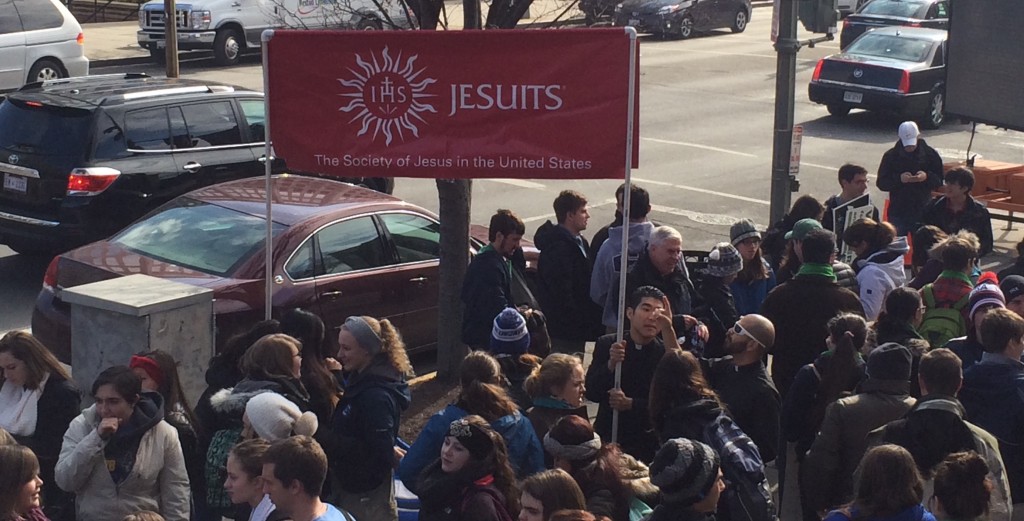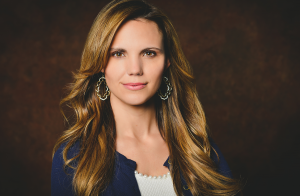This evening, at our parish’s regular 5:30 pm Mass, I put on purple vestments, and we prayed for the defense of unborn life and in reparation for the sin of abortion.The occasion, of course, is the anniversary of the Roe v. Wade decision, which the U.S. Catholic bishops have designated as a day of prayer and penance.
Praying for an end to abortion – and an end to the situations which make abortion appear to be the best or only option – seems obvious enough. But the “penance” part is less clear. What does it mean for us, especially for us who are already vocal about being pro-life, to intend and to offer some kind of reparation for abortion?
I spent this morning at a Mass and rally for groups from the various Jesuit schools gathered to participate in the March for Life. Hundreds of young people prayed together, just before heading out to join the hundreds of thousands who spent today marching against abortion. What kind of penance do they owe, if any? Aren’t they already on the side of the angels in this issue? And what good is our penance doing, if it’s mainly just a gathering of the already-convinced celebrating their conviction together?

Photo: by Sam Sawyer, SJ
Or considered from another angle – the viewpoint, perhaps, of some of the Washingtonians whom I passed on the sidewalks today, looking askance at crowds of protesters and rolling their eyes at their chants – isn’t this all just an assertion of moral superiority? Isn’t “penance” for the sin of abortion just an elaborate and disingenuous way to denounce abortion as a sin, and to trumpet the Church’s authority in declaring it so?
***
If our penance and reparation is to be effective, then it has to be more than declaration; it has to actually be penance and not just protest or proclamation.
So what are we offering reparation for? Some of it is vicarious – we’re offering up our prayer and penance on behalf of those who don’t yet see the need for their own, and asking God to move their hearts. But I think we need reparation for our own sins as well. Even if we don’t directly support or advocate for abortion, as citizens in this democracy, we still participate in a set of structures that not only make abortion possible, but in many ways are premised on the availability of abortion.
We are all involved in the economic structures that make motherhood harder to choose; we are all wrapped up together in the social expectations that divorce sex from a grounding in fidelity and depend upon being able to avoid or eliminate its culmination in pregnancy. From both sides of the aisle, we are all complicit in the politics that have turned abortion into a partisan wedge issue. Whether we oppose abortion or think it should be “safe, legal, and rare,” we’re mostly offering lip service without actually doing much to achieve either goal. The accusation “they only care about babies until they’re born” is a cheap shot, but we all share the responsibility for a system that, for the most part, leaves a mother with an unwanted pregnancy to face the consequences of her choice, no matter what it is, alone and unaided.
Even – and maybe especially – if we have impeccable pro-life bona fides, we bear the responsibility of being part of a public dialogue that has largely ground to a halt. Let’s do some penance and reparation for that.
***
Here’s my question, as much or more for me as for anyone else. What have I actually done to concretely encourage the conversion of minds and hearts about abortion? While acknowledging and valuing the witness of public protest, and the work of lobbying legislators and working to elect pro-life leaders, let’s also ask ourselves this: when’s the last time you had a serious conversation – speaking and listening – with someone close to you who’s pro-choice?
If I’m being honest, I tend to avoid those conversations. They’re uncomfortable; they’re often fruitless, and they’re easier to walk away from. When I do wind up in a conversation like that, I’m much more likely to explain my position in the terms I already know and understand than to do the difficult work of finding language and moral logic that can be shared. That’s what I need to do penance for today.
What if our reparation took the shape of having those painful conversations? If it began by acknowledging that we don’t want to have to talk about this? If we embraced humility by trying to understand why someone looking at this situation from the perspective of a woman’s autonomy might be unconvinced and offended by the attempt to play a moral trump card?
So that’s my suggestion for the work of reparation today. We need to have the conversations about abortion that we’re least comfortable with: the conversations that are more difficult than the arguments. We need to spend enough time, with enough honesty, in conversation that our pro-choice friends and family can see that we care even more about unborn lives – and about the women faced with the struggle of unwanted or unplanned pregnancies – than we do about the moral logic that determines our stance.
We’re all of us part of a broken dialogue that’s allowed pro-lifers to be depicted as primarily interested in imposing our morality on others. That depiction is, of course, both untrue and unfair. But denouncing it as such hasn’t done much to eliminate it. The harder work – a work of reparation – remains to be done, and it begins in conversation.











